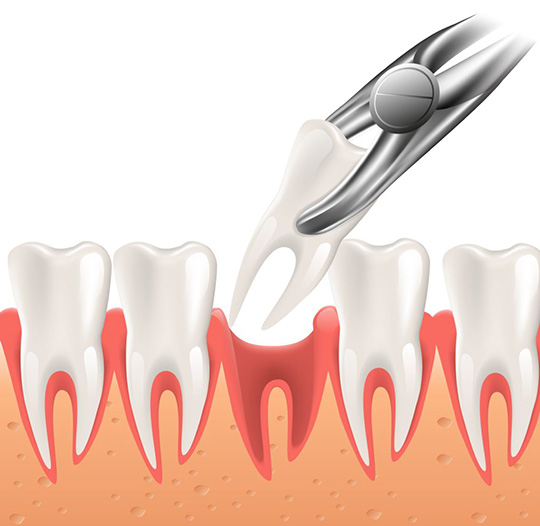Top Emergency Dentistry in Denver, CO
Dental emergencies happen at random and can affect your ability to carry out your daily routine. At Governor’s Park, we understand that emergencies are uncontrollable, which is why we offer same day emergency appointments. Our Denver, CO office works around busy schedules just like yours, so that you can receive the dental care you need. We also offer easy payment options in order to expedite your emergency dental care.
A dental emergency service can include any of the following:
- Fractured or broken tooth
- Severe toothache
- Broken filling
- Unexplained tooth loss
- Painful, bleeding, or swollen gums
Do not hesitate to call our Denver, CO office if you are experiencing a dental emergency. We are dedicated to providing thorough and immediate care so that you can get back on track.
Most dental emergencies can’t wait – get a same day appointment and get out of pain!
At Governor’s Park Dental Group, we work closely with several specialists and Endodontists in the area, including those that perform Root Canal procedures. We will make sure you receive nothing but the best care possible!
In the past, if you had a tooth with a diseased nerve, you’d probably lose that tooth. Now, with “root canal therapy,” your tooth can be saved. When a tooth is cracked or has a deep cavity, bacteria can enter the pulp tissue and germs can cause an infection inside the tooth. If left untreated, an abscess may form. If the infected tissue is not removed, pain and swelling can result. This can injure your jawbones and be harmful to your overall health.
Root canal therapy involves one to three visits. During treatment, your general dentist or endodontist removes the affected tissue. Next, the interior of the tooth will be cleaned and sealed. Finally, the tooth is filled with a dental composite. If your tooth has extensive decay, your dentist may suggest placing a crown to strengthen and protect the tooth from breaking. As long as you continue to care for your teeth and gums with regular brushing, flossing, and checkups, your restored tooth can last a lifetime.
What is a root canal procedure?
Tooth decay can progress down into the pulp. When this happens, the pulp can become infected. Infection of the pulp can be very painful and can also deteriorate into an abscessed tooth when infection and swelling develops in the tissues around or beneath the tooth. When the pulp becomes infected or the tooth becomes abscessed, it is necessary to perform a root canal.
Why do I feel pain?
When the pulp becomes infected due to a deep cavity or fracture, bacteria can seep in. When there has been an injury due to trauma, the pulp can die. Damaged or dead pulp causes increased blood flow, pressure, and cellular activity. Pain in the tooth is commonly felt when biting down or chewing, and eating or drinking hot and/or cold foods and beverages.
Why do I need root canal therapy?
The tooth will not heal by itself. Without treatment, the infection will spread. The bone around the tooth will begin to degenerate, and the tooth may fall out. Pain usually worsens until one is forced to seek emergency dental attention. The only alternative is extraction of the tooth, which can cause the surrounding teeth to shift, resulting in a bad bite. Though an extraction is cheaper, the space left behind will require an implant or a bridge, which can be more expensive than root canal therapy. If you have the choice, it’s always best to keep your original teeth.
What are the risks and complications with root canal therapy?
More than 95 percent of root canal therapies are successful. However, sometimes a case needs to be redone due to diseased canal offshoots that went undetected, or the fracturing of the canal filling. More commonly, a root canal therapy will fail altogether, marked by the return of pain.
What happens after root canal therapy?
Once root canal therapy is completed, the endodontist will refer the patient back to our office for the permanent restoration on the tooth. A temporary filling was placed immediately following the root canal therapy and will need to be replaced with a permanent filling or crown and build up. A crown will be necessary on all posterior teeth to properly protect the root canal- treated tooth from fracturing. Front teeth can typically be restored with a filling, however a crown may be necessary in some cases. Your dentist will determine the best choice for your individual needs.
How long will the restored tooth last?
Your restored tooth could last a lifetime, if you continue to care for your teeth and gums. However, regular checkups are necessary. As long as the root(s) of a treated tooth are nourished by the tissues around it, your tooth will remain healthy.
Your restored tooth could last a lifetime, if you continue to care for your teeth and gums. However, regular checkups are necessary. As long as the root(s) of a treated tooth are nourished by the tissues around it, your tooth will remain healthy.
How long does root canal therapy save my tooth?
An infected tooth is a serious condition and must be treated promptly to avoid tooth loss and the spreading of infection to other teeth. If you are concerned about an infected or abscessed tooth, we urge you to call Governor’s Park Dental Group today.
When patients experience extreme sensitivity, pain from a broken tooth, or are suffering from advanced periodontal disease, your dentist could recommend that you have a tooth extracted. During a simple extraction, the dentist can safely remove the affected tooth without the need for major surgery.

Reasons for tooth extractions
There are numerous situations in which a simple extraction is needed. Extractions are typically performed because of an active problem such as pain, swelling, decay, infection, as a preventative measure to avoid serious problems in the future, or to prepare your for another cosmetic or restorative procedure.
Common reasons for tooth extractions include:
- Advanced periodontal disease that has loosened the roots of your tooth
- Extra teeth or baby teeth that impede adult teeth
- Preparing a patient for orthodontic treatment
- Removing a fractured or malformed tooth
- Severe tooth decay which cannot be remedied with root canal therapy
- Removal of Wisdom Teeth
How tooth extractions are done
Although we often hope to avoid the extraction of a tooth, sometimes it is necessary if the tooth cannot be saved by a root canal or other dental procedure.
Extractions are usually performed under local anesthesia. For those with high anxiety or prefer to be sedated for this type of procedure, we also offer sedation dentistry.
Once the tooth has been pulled, a blood clot will form in the socket. The dentist will place a few stitches (usually dissolvable sutures) to close the gums over the extraction site. The dentist will pack a gauze pad into the socket and have you bite down on it. This will help stop the bleeding and help the clot form. It’s important to let the clot heal and form properly. If the blood clot does not form properly, you can run the risk of a painful condition called dry socket.
Home care instructions for tooth extractions
It normally takes several days to recover from an extraction. You will be placed on a soft food diet for several days, need rest and limit strenuous activity, and refrain from smoking, rinsing, and using straws.
